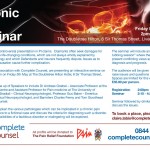“Successful” claimant’s costs recovery restricted to 6.7% of budget
See link here for discussion of facts and judgment on liability by Charles Feeny
PD -v- RLBUH NHS T
Key points
- Successful claimant’s costs recovery restricted after fully contested trial to a fixed sum reflecting just
6.7% of the budgeted base fees and disbursements; and - Claimant ordered to pay all of the defendant’s costs following a Calderbank.
The claim and result at trial
The claimant (C) underwent surgery on 11 November 2010. During that surgery C’s spleen was torn or incised but this was not recognised until 36 hours later when C underwent an emergency laparotomy and splenectomy. As a result of the surgery, C was left with an incisional hernia plus other significant sequelae. Damages were agreed eventually, subject to liability at £150,000.
Four months after surgery, C entered into a conditional fee agreement(CFA) and on 1 October 2012 sent a letter of claim (LOC) which alleged that the initial laparoscopic surgery should have been converted to open surgery which would have obviated the need for splenectomy.
The letter of response (LOR) contained a full denial and NHSLA’s file was closed.
The particulars of claim (POC) (March 2014), which predominantly advanced a case alleging negligent failure to avoid the need for splenectomy also alleged, for the first time, delay in identifying the need for laparotomy. The defence (served July 2014) admitted some delay, albeit five hours less than C had alleged.
In September 2015, D served its expert evidence, which conceded the full period of delay alleged by C. The defence was amended in June 2016 to reflect this concession. All other allegations remained in issue.
In October 2015, D made a Calderbank offer of £5,000 plus £20,000 costs. C rejected that offer and in March 2016 made a £167,000 part 36 offer. C then offered alternative dispute resolution (ADR), which D refused at the time as being inappropriate (agreed by the Judge) and in July 2016 D offered £5,000 under part 36. C counter-offered eight days later at £110,000.
After a four-day trial in September 2016, C was awarded £2,500 for the pain and suffering and avoidable blood transfusions during the agreed period of delay but the rest of C’s case was rejected.
Arguments on costs
C contended that he was entitled to costs as the successful party. He referred to guidance in the White Book and to recent judgments of Jackson LJ suggesting that if D wanted to protect its position it ought to do so by way of part 36. C said that D had been slow to make a part 36 offer and had initially made only a partial admission on delay. He argued that the case had been reasonably pursued with expert evidence in support.
C said that the £20,000 costs in the Calderbank offer was not attractive, hence being reasonably rejected. C’s budgeted ‘incurred’ base costs and disbursements alone were already around £50,000 by Feb 2015. C also argued that D had been unreasonable in failing to consider ADR.
At the eleventh hour, in oral submissions, C accepted that any failure on part of its case should result in a reduction of C’s own costs of not more than 5%.
Judgment on costs
HHJ Parker found that C was the successful party but agreed with D that the extent of C’s success was very small and limited indeed as he ran issues of greater substance and importance to trial, on which he was unsuccessful. He accepted D’s argument that, even if C had succeeded, under CPR 44.2, the proper exercise of discretion ought to lead to C recovering significantly reduced costs and D recovering a substantial proportion of its costs.
HHJ Parker therefore found it was logical to consider and award costs as appropriate over the following three periods:
- Letter of claim to Calderbank – Defendant do pay the claimant’s costs in the fixed sum of £10,000.
- Expiry of Calderbank to part 36 – Claimant do pay the defendant’s costs to be assessed.
- Part 36 to Trial – Claimant do pay the defendant’s costs to be assessed.
HHJ Parker accepted D’s arguments that, in reality, the great majority of the costs incurred by both parties were in relation to C’s main case (the splenectomy) and that C had lost every contested issue at trial. He accepted D’s argument that the delay in amending the defence was irrelevant to costs since C knew from service of the expert evidence that D’s expert would concede that point. The judge accepted D’s argument that the failure to allege delay in the LOC was relevant conduct under CPR 44.2 because D had been given no opportunity to avoid litigation. Had delay been alleged pre-issue, it would have been admitted. C would however have incurred some costs in any event in valuing the delay.
The judge was persuaded by D’s submission that, having regard to the new formulation of the proportionality rule, (i.e.in a case that straddled 1 April 2013, the Court should have regard to the fact that the Lownds test would apply only to pre-April costs and that the new rule applied thereafter) when considering the effectiveness of the Calderbank (i.e. whether C would have done better to accept it), the Court should consider not just the costs that C had in fact incurred but also the costs which, on assessment, would be proportionate to the sum of damages awarded. £20,000 was clearly more than reasonable and disproportionate in respect of a claim for £2,500.
Moreover, he agreed it was reasonable to use a Calderbank offer because a part 36 would have exposed D to all of C’s reasonable costs, which may have been disproportionate to the sum recovered (the claimant’s ‘approved’ budgeted costs to trial were in the sum of £150,628.55 plus additional liabilities). The judge agreed with D that C ought to have accepted the Calderbank and that C’s failure to accept was not related to the costs offered. If it were, C would have accepted D’s subsequent part 36 offer rather than counter-offer £167,000. Moreover, if costs really were the issue C could and should have counter-offered in respect of costs.
ADR
HHJ Parker rejected the C’s argument that D’s costs should be reduced for a failure to engage in ADR. He accepted there was no reasonable/realistic prospect that ADR would have achieved settlement or any real narrowing of the issues. Had D agreed to ADR, HHJ Parker recognised this would have only increased costs substantially and the cost of ADR would have been more than what the claimant was actually awarded.
Claimant’s limited costs award
HHJ Parker considered the potential injustice that might arise if he found C should have accepted the Calderbank but C subsequently recovered more than the £20,000 on assessment. In making his order HHJ Parker followed the submission of counsel for D that only judgment for a fixed sum equal to or less than the costs on offer in the Calderbank could prevent the risk that C might recover more on assessment.
C was awarded a fixed sum of £10,000 to reflect the costs C would have incurred in any event had the delay issue been investigated and settled pre-issue but C was ordered to pay all of D’s costs from the last day for accepting the Calderbank. The fixed sum included additional liabilities and VAT.
Practice points
Use Calderbank offers where appropriate.
DOWNLOAD THE CASE NOTES PDF HERE
Contact information
Suzanne Maher, Associate, Hill Dickinson LLP
Counsel – Michelle Fanneran and Charles Feeny, Complete Counsel



